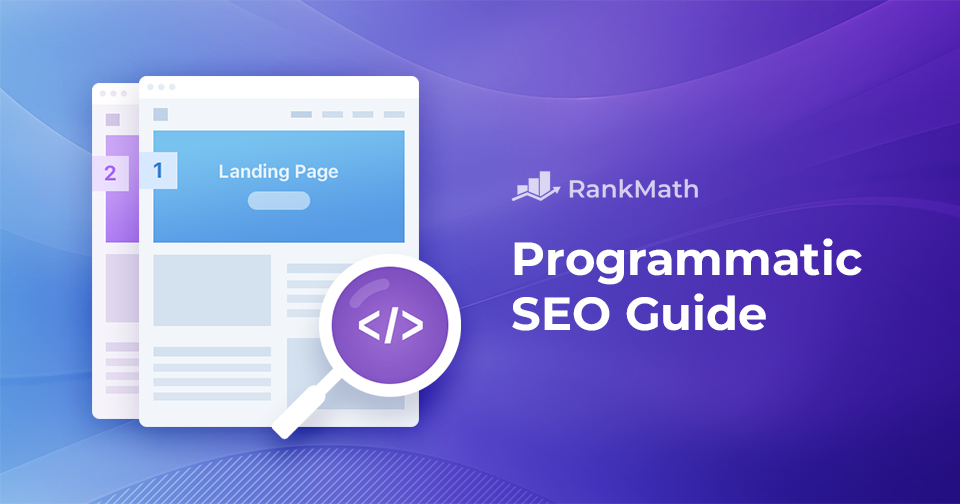Programmatic SEO refers to the use of automation and data-driven decision-making processes to enhance and optimize a website’s search engine performance.
Unlike traditional SEO methods that often involve manual interventions, programmatic SEO relies on algorithms, real-time data analysis, and automation tools to streamline and improve the efficiency of search engine optimization efforts.
In this post, we’ll discuss everything you need to know about programmatic SEO and help you unlock the potential for enhanced online visibility and increased user engagement.
Table Of Contents
1 What is Programmatic SEO?
Programmatic SEO is a strategy that revolves around the creation of numerous landing pages to secure prominent positions on search engine results pages (SERPs). Occasionally known as pSEO, this technique is about efficiently scaling up your online presence.
In simpler terms, it automates tasks, analyzes real-time data, and ensures that your content is not only relevant but also strategically positioned to meet the evolving demands of search engines.
Before churning out thousands of pages, it’s important to notice the advice of Google’s John Mueller: “Programmatic SEO is often a fancy banner for spam.”
If you’re into publishing a large volume of nearly identical pages, you might face the risk of generating thin content – content that lacks substantial value for the end user.
For instance, if you search for “Top things to do in California”, Tripadvisor tops the list. They have identical pages like this for every city worldwide, with the same design and content.

How is this possible?
Recognizing the high search volume for specific keywords, you can aim to connect with as many audiences as possible. To achieve this goal, you need to create numerous landing pages strategically designed to maximize link clicks. These landing pages may be easily accessible through mobile, voice, and local searches.
For instance, Zapier, a tool for automating workflows, seamlessly links various software products. With an estimated 800,632 pages, the platform anticipates a monthly organic traffic of 306,000.
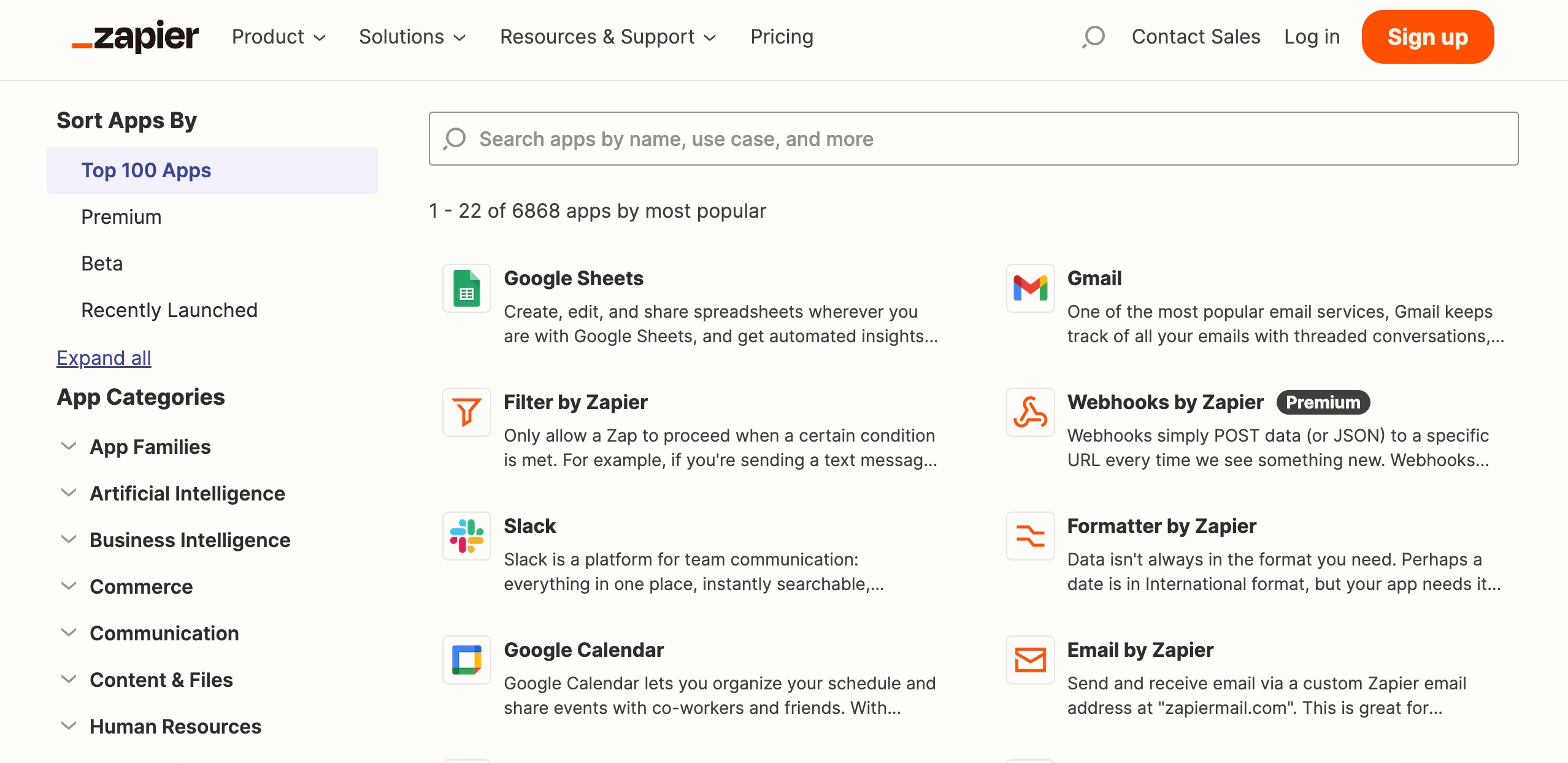
So, programmatic SEO is not just about optimizing for search engines; it’s about creating a personalized and efficient user experience. With that said, programmatic content must satisfy user intent and comply with Google’s spam policies.
2 Pros and Cons of Programmatic SEO
Let us now discuss the pros and cons of programmatic SEO.
Pros of Programmatic SEO
Efficiency and Scalability
Programmatic SEO relies on automation, streamlining repetitive tasks and significantly improving efficiency. It enables the management of large-scale websites with ease, ensuring scalability for growing platforms.
Data-Driven Decision Making
Real-time data analysis is a core element of programmatic SEO, allowing you to make informed decisions based on the latest trends and user behavior. This data-driven approach enhances the precision and relevance of optimization efforts.
Personalization and Targeting
Programmatic SEO facilitates dynamic content optimization, enabling personalized experiences for the audiences. This approach improves user engagement and satisfaction by delivering content that aligns with individual preferences.
Enhanced User Experience
By focusing on user intent and behavior, programmatic SEO contributes to an improved overall user experience. Relevant content, personalized recommendations, and user-friendly navigation enhance user satisfaction.
Cons of Programmatic SEO
Risk of Thin Content
Mass production of landing pages, a common practice in programmatic SEO, poses the risk of generating thin content. Pages may become too similar, offering little substantive value to the audience and potentially violating search engine guidelines.
Potential for Spammy Practices
Some may misuse programmatic SEO techniques for spammy practices. This can include the creation of low-quality content or attempts to manipulate search engine algorithms, leading to potential penalties.
Overemphasis on Quantity vs. Quality
The focus on creating a large number of landing pages may lead to an overemphasis on quantity over quality. It’s essential to ensure that each page adds genuine value and is relevant to your audience.
3 How to Do Programmatic SEO
Now that you have a clear idea of programmatic SEO and its benefits let us discuss the way to do programmatic SEO.
3.1 Conduct Keyword Research
Conducting keyword research is important for figuring out the words and phrases that your target audience is using to search for information, products, or services related to your business.
You can use tools such as Google Keyword Planner, Ahrefs, SEMrush, and others to help you find the right keywords for your content.
This will help you optimize your website pages and content so that they appear higher in search results and reach the right audience.
It’s important to understand the head terms and modifiers when conducting keyword research, as they are the building blocks of long-tail keywords.
Head terms are short, generic keywords that represent broad topics. They typically have high search volumes and are competitive. For instance, a shoe shop can have terms like: “best shoe for,” “Shoe shop near,” and “High heels for.”
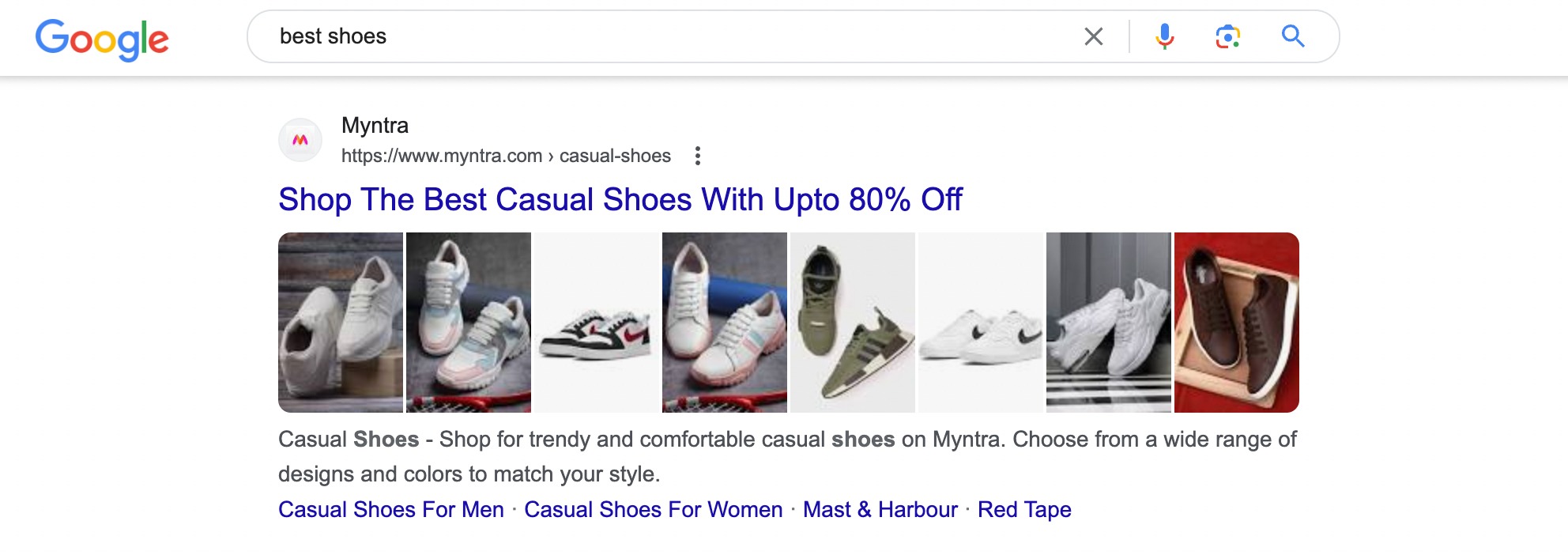
These head terms are of very high traffic, but they usually don’t come alone as they lack specificity; that’s where you’ll need modifiers.
Modifiers are additional terms or qualifiers that refine the search intent and make the query more specific. These terms often indicate user intent, location, or specific features. You can add modifiers like “Best shoe for camping,” “Best shoe for running,” or “Best shoe for gym,” etc, to make the query more specific and targeted.

By combining head terms with modifiers, you can create long-tail keywords that align with the goals of programmatic SEO.
Long tail keywords are more specific and have lower search volumes but often indicate higher purchase intent and conversion potential.
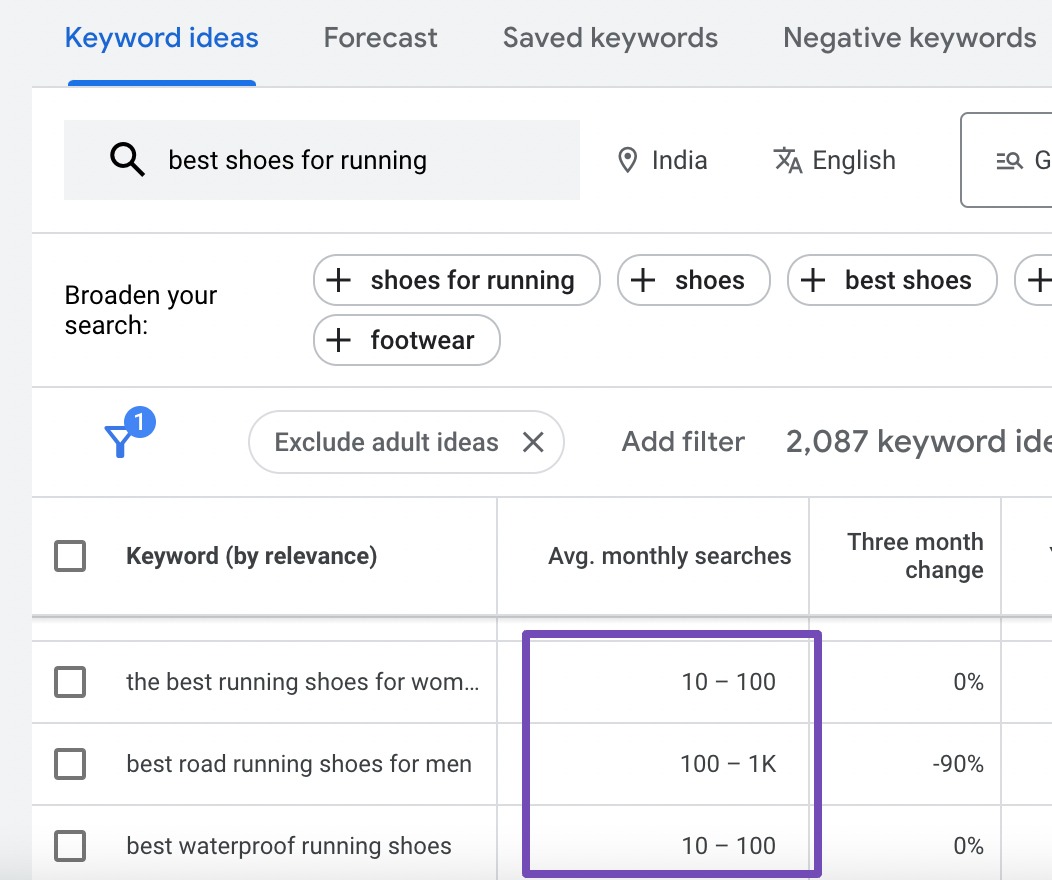
Programmatic SEO aims to generate and optimize pages for these long-tail keywords, enabling you to capture more targeted traffic and potentially increase conversions.
Refer to our dedicated tutorial on keyword research to identify the keywords with ease.
3.2 Develop a Landing Page Template
You can use one template to create numerous copies of a landing page. So, design and build a single webpage to serve as the foundation of your programmatic SEO project.
Let’s consider Tripadvisor as an example.
They’ve structured their content with a dedicated page for each restaurant, covering essential details like the restaurant’s name, description, pricing, type of food, location, ratings, photos, and contact information. This approach ensures that users can find comprehensive information about each restaurant in one place.
Moreover, Tripadvisor also strategically features a page targeting a broader, more generic search term, such as “best restaurants in ((modifier)).” On this page, they present an extensive list of restaurants from a specific city, leveraging a custom title to tailor the content to their users searching for the best dining options in that particular location.
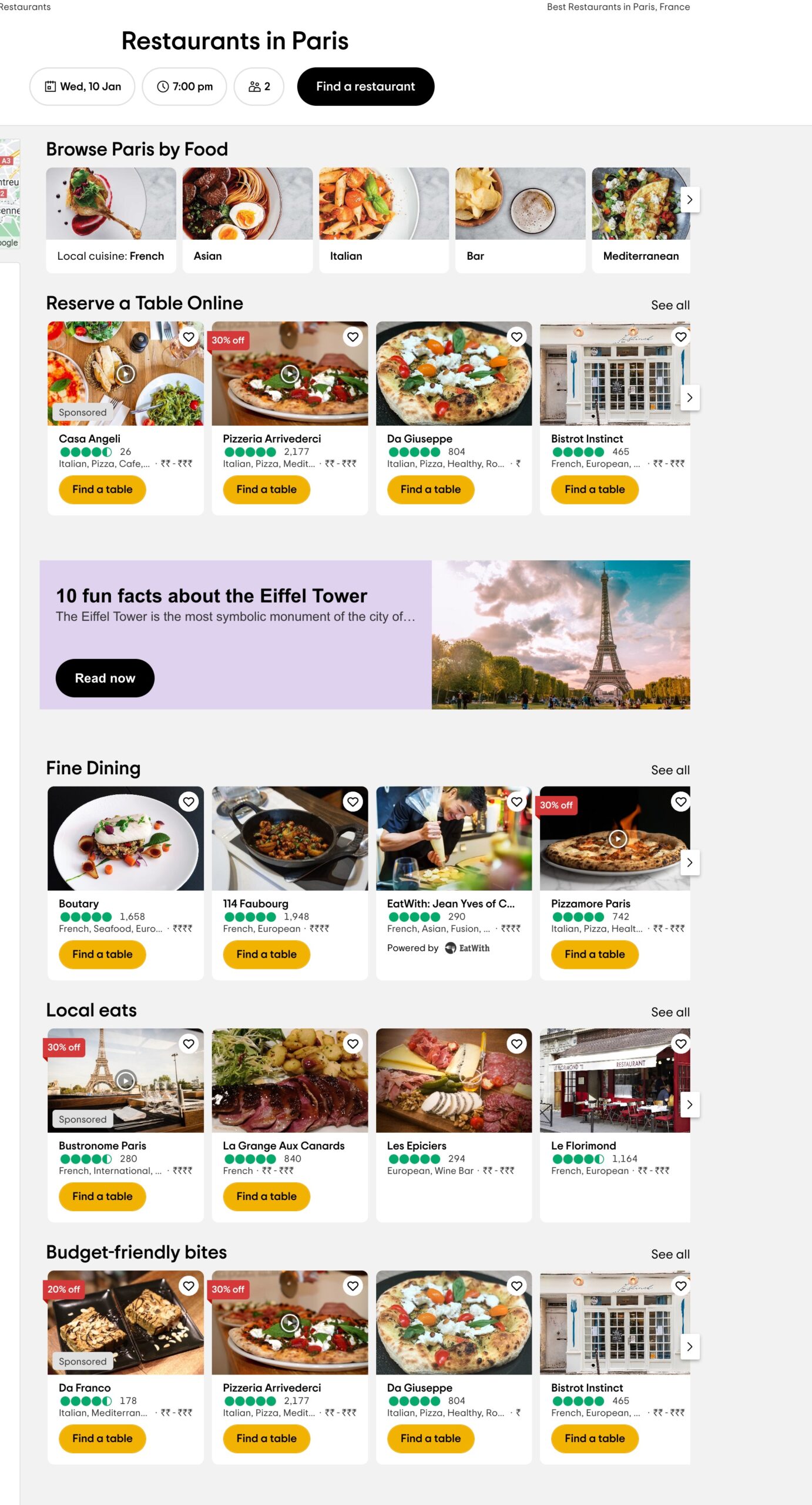
You can choose the layout that best fits your needs and meets your audience’s expectations. But prioritize user experience by designing a clean, intuitive layout, ensuring responsiveness across various devices.
If your page layout is difficult to navigate, lacks proper CTAs, or has poor design, it can impact multiple pages at once. Therefore, carefully consider the structure of your pages before you start.
Regularly update the template to align with changing SEO trends, ensuring sustained effectiveness in programmatic SEO efforts. Once you have your template ready, it’s time to create your landing page.
3.3 Connect to Database
Now that you have built your template, the next question is: where should you store the information with these components?
You can utilize a straightforward Excel spreadsheet for this purpose. Alternatively, consider using a tool like Airtable, which simplifies the process of creating tables to organize and manage your data efficiently.
3.4 Publish Your Content
It’s time to publish the content you’ve just created on your website. Depending on the content management system (CMS) you employ, several no-code tools can assist in this process. If your website is built on WordPress, consider using WP All Import.
Once you’ve configured these tools, they will automatically publish a new website page whenever a new row of data is added to your spreadsheet. This streamlines the publication process, making it more efficient and hassle-free.
4 Conclusion
Programmatic SEO stands as a dynamic and strategic approach to search engine optimization, offering a scalable and automated method to manage and optimize a vast number of landing pages.
Success in programmatic SEO depends on a strategic blend of creativity, data analysis, and ongoing adaptation to ever-changing search algorithms and user behaviors.
If you like this post, let us know by Tweeting @rankmathseo.
